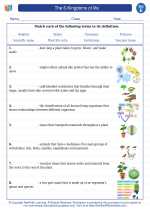The 6-Kingdoms of life -> circulation
Circulation
Circulation is the movement of blood through the body, facilitated by the cardiovascular system. This process is essential for delivering oxygen and nutrients to cells, removing waste products, and maintaining overall homeostasis.
Components of Circulation
The cardiovascular system consists of the heart, blood vessels, and blood. The heart acts as a pump, while blood vessels serve as the pathways through which blood flows. Blood carries oxygen, nutrients, hormones, and waste products to and from cells.
The Heart
The heart is a muscular organ that pumps blood throughout the body. It consists of four chambers: the left and right atria, and the left and right ventricles. The atria receive blood, while the ventricles pump blood out of the heart.
Blood Vessels
Blood vessels include arteries, veins, and capillaries. Arteries carry oxygen-rich blood away from the heart, while veins bring oxygen-poor blood back to the heart. Capillaries are tiny blood vessels where exchange of nutrients and wastes occurs at the cellular level.
Blood
Blood is composed of plasma, red blood cells, white blood cells, and platelets. Plasma carries nutrients, hormones, and waste products. Red blood cells transport oxygen, while white blood cells are involved in the immune response. Platelets aid in blood clotting.
Circulation Process
When the heart beats, it contracts and relaxes in a rhythmic cycle, creating the heartbeat. This rhythmic pumping action propels blood through the blood vessels, facilitating circulation throughout the body.
Pulmonary Circulation
In pulmonary circulation, blood is pumped from the heart to the lungs and back. In the lungs, carbon dioxide is exchanged for oxygen, and the oxygen-rich blood returns to the heart to be pumped to the rest of the body.
Systemic Circulation
In systemic circulation, oxygenated blood is pumped from the heart to the rest of the body, delivering oxygen and nutrients to tissues and organs. Deoxygenated blood returns to the heart to be sent to the lungs for oxygenation.
Importance of Circulation
Effective circulation is crucial for overall health and proper functioning of the body. It ensures that cells receive the necessary oxygen and nutrients, and that waste products are removed efficiently. Circulation also plays a role in temperature regulation and immune response.
Study Guide
- What are the main components of the cardiovascular system?
- Describe the functions of the heart, blood vessels, and blood in circulation.
- Explain the process of pulmonary circulation.
- What is the significance of systemic circulation?
- Discuss the importance of effective circulation for overall health.
◂Science Worksheets and Study Guides Fifth Grade. The 6-Kingdoms of life
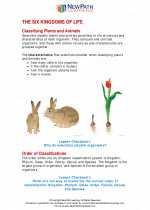
 Activity Lesson
Activity Lesson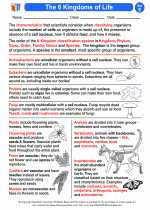
 Worksheet/Answer key
Worksheet/Answer key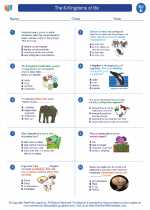
 Worksheet/Answer key
Worksheet/Answer key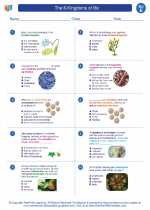
 Worksheet/Answer key
Worksheet/Answer key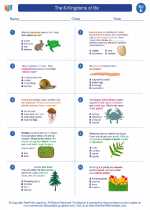
 Worksheet/Answer key
Worksheet/Answer key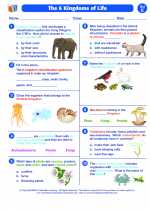
 Vocabulary/Answer key
Vocabulary/Answer key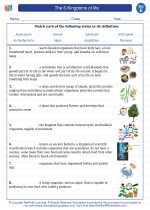
 Vocabulary/Answer key
Vocabulary/Answer key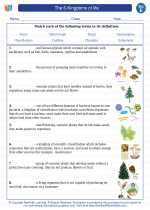
 Vocabulary/Answer key
Vocabulary/Answer key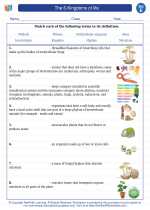
 Vocabulary/Answer key
Vocabulary/Answer key